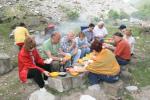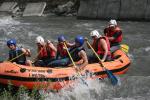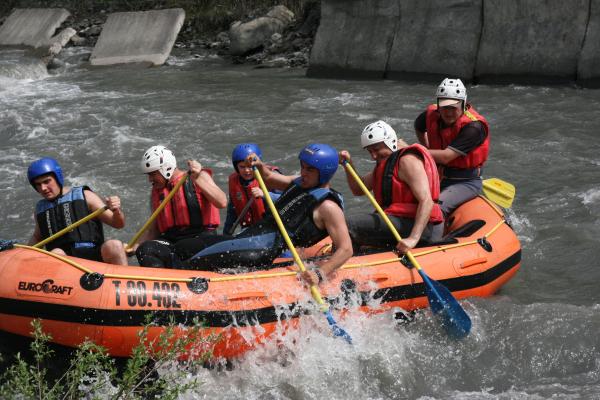|
|
||
|
|
||
|
|
||




Need for team building Modern society and culture continues to become more fluid and dynamic. Factors contributing to this include the communications revolution, the global market and the ever-increasing specialization and division of labor. The net effect is that individuals are now required to work with many different groups of people in their professional as well as personal lives. Joining a new group and immediately being expected to get along with them is somewhat unnatural - historically humans have worked and lived in close-knit, static societies. As such, people have had to develop methods to help people adapt to the new requirements. All kinds of people, from investment bankers to catering staff and session musicians, face the same difficulties. As yet there is no generally agreed solution to the problem - it may not even be possible given the thousands of years of cultural evolution that brought us to our present behavior patterns. Team building ingredients Ingredients seen as important to the successful set-up and launch of such team efforts include: - selection of participants - establishing visions, goals, missions and/or objectives - distribution of workload - timetabling - balancing skill-sets - allocation of roles within the team - metrics - harmonising personality types - training on how to work together The morale of the team, an important variable, may depend on such factors as: - support - resources - communication - personalities As team performance reflects on management, managers -- and even coaches -- sometimes feel the need to take part in constructing and fostering teams. As with many activities, the methodology and effectiveness of team building programs can run a full gamut. For a notorious recent example of team building run amok, see the case of Kamp Staaldraad in South Africa, 2003. Team building in organizational development The term 'team building' can refer generally to the selection and motivation of teams, or more specifically to group self-assessment in the theory and practice of organizational development. When a team in an organizational development context embarks upon a process of self-assessment in order to gauge its own effectiveness and thereby improve performance, it can be argued that it is engaging in team building, although this may be considered a narrow definition. To assess itself, a team seeks feedback to find out both: • its current strengths as a team • its current weaknesses To improve its current performance, a team uses the feedback from the team assessment in order to: • identify any gap between the desired state and the actual state • design a gap-closure strategy As teams grow larger, the skills and methods managers must use to create or maintain a spirit of teamwork change. The intimacy of a small group is lost, and the opportunity for misinformation and disruptive rumors grows. Managers find that communication methods that once worked well are impractical with so many people to lead. In particular, leaders encounter difficulties based on Daglow's Law of Team Dynamics: "Small teams are informed.Big teams infer." Please do not hesitate to contact us for any question you may have: 18, Rustaveli Avenue, Tbilisi, Georgia, 0114. Mob.: +(995 599) 15 68 40, Tel.: +(995 32) 245 01 10, info@geotour.ge www.Geotour.ge |
||











